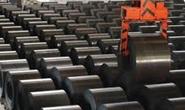Government/Policy

March 13, 2016
Hot Rolled Antidumping Ruling Due on Tuesday
Written by John Packard
The U.S. Department of Commerce (US DOC) is scheduled to release their Preliminary Determination of Antidumping (AD) against Australia, Brazil, Japan, Korea, the Netherlands, Turkey and the United Kingdom. This is the third and final Preliminary Determination to be announced on flat rolled steel products. Previously we saw rulings on corrosion resistant (galvanized/Galvalume) and cold rolled.
China and Russia were not involved in the hot rolled trade case as there have been previous rulings or agreements made which essentially are preventing both countries from shipping hot rolled to the United States at this time.
The key countries to watch on Tuesday are Korea (which supplies at least 50 percent of the feed stock to USS/Posco on the West Coast), Brazil (where a portion of their exports go to feed CSN in Terre Haute, IN) and Australia (which feeds its Steelscape mill in Washington state).
There evidently is some confidence by a number of the countries as they continue to export HRC to the United States despite (or perhaps because of) previous CVD and critical circumstances rulings.
The only country to have a countervailing duty (CVD) ruling against it was Brazil (as the US DOC did not receive all of the data requested) and their rate was placed at 7.42 percent. Brazil and Japan were both found to have critical circumstances which means any required deposits would be retroactive 90 days from the publication of the ruling in the Federal Register.
Other than Brazil, all of the other countries, Korea, Turkey, Australia, Japan, the Netherland and the United Kingdom have yet to receive a negative ruling against them on HRC.
Knowing that the AD ruling was to be made in early March (originally it was scheduled to be released last week but was moved out one week due to inclement weather in Washington, DC) Korea (16,000 tons), Turkey (19,000 tons) and the Netherlands (25,000 tons) each have requests for licenses for the month of March.
The rest of the mills: Brazil, Japan, United Kingdom and Australia have little to no license requests for HRC for March.
We will have full coverage of the AD ruling when it is made available sometime on Tuesday afternoon to early evening.
After this ruling we move into the final phase of the trade suits with Final Determinations to come from the US Department of Commerce (most are due in May) and then Final ITC Ruling which are due in July. The first ruling will be on corrosion resistant followed by cold rolled and then hot rolled.







